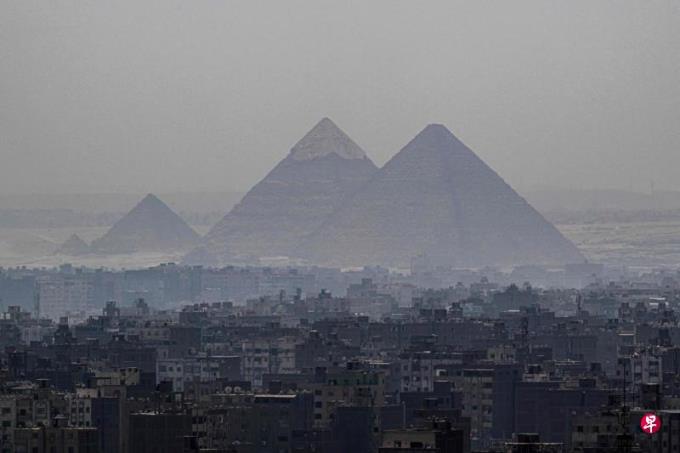
The 2024 Nobel Prize in Economics awarded three scholars: Daron Acemoglu, Simon Johnson, and James A. Robinson to recognize them "how to form the system and how to form the system and howOutstanding contribution of research on prosperity ".
Among them, Asimogru and Robinson jointly wrote a number of milestone works, the most well -known is why the country fails: the root of power, prosperity, and poverty (WHY National: The Origins of PowerProsperity, and page).Below, we will understand the economic thoughts of the two scholars through this book.
The book published by the two authors in 2012 pointed out that North Africa and the Middle East "Arab Spring", which began on December 17, 2010, aroused the anger of the public from a street hawker, and then ignited the Jasmine Revolution.And spread to other countries in the Middle East.The former President Mubarak, who was closely controlled by Egypt for nearly 30 years, was dismissed in this storm.
The author believes that the reason why these countries are dissatisfied is poverty.For example, the average level of Egyptian income is about 12%of Americans, and the expected life span is 10 years; 20%of the Egyptian population lives in the red poverty.The author borrows a question: Why is Egypt so poor?
Most scholars and critics have a completely different answer to this question.Some people emphasize that the poverty in Egypt is mainly determined by geographical conditions. Most of them are desert and lack of sufficient rainfall, which is not suitable for high productivity agriculture.Others pointed out that the cultural characteristics of the Egyptians are not conducive to economic development and prosperity, lack of work ethics and cultural characteristics that make other countries prosper, and accept the faithful beliefs that conflict with the success of the economy.The third view is the mainstream of economists and policy experts. It is believed that Egyptian ruler does not know what to do to promote the prosperity of the country, and has always adopted incorrect policies and strategies.This view also believes that if these ruler can accept the correct consultation provided by the correct consultant, the prosperity will follow.
The two authors give completely different opinions. They believe that the key to determining the success or failure of the country is not culture and geography, but is closely related to the choice of political system.They wrote: "Countries such as the United Kingdom and the United States become rich because the people overthrow the elites of controlling power and create a society that widespread political rights. In such a society, the government needs to respond to the people and be responsible to the people, and the vast numberPeople can use economic opportunities. "
On the other hand, the people's poverty is because of being ruled by a small group of elites. They organize the society in Tuli themselves and sacrifice most people's interests.Political power is concentrated in the hands of a few people to create huge wealth for those in power. For example, Mubarak obviously accumulates $ 70 billion in wealth, and the loser is the Egyptian people.
Why do some autocratic and wealthy and wealthy
In another dictatorship and democracy that coincides with the origin of the economy, the two of them directly attribute the success or failure of the country to the political system.They will be richer in the wealthy country, and the poor are more poor, and they are further attributed to the political system, or whether they are democratic.
But their research is not without vulnerabilities. At least it is impossible to explain democratic India, South Africa after the dismissal of race, and Britain from 1945 to 1979.Chile, Taiwan under the governance of Chiang Kai -shek, South Korea under the governance of Park Jung -hee, and South Korea under the governance of Quan Douhuan.
Taking Chile as an example, according to the report released by Chile and reconciliation of the National Committee in 1991, in 17 years in Pinochet's dictatorship, 2095 people were killed and 1102 people were missing.In 2004, a report issued by the National Committee of the Political Crusade and torture showed that about 35,000 people claimed to be tortured by military and political torture, of which up to 28,000 cards were considered legal.Pinochett's usual way for dissidents is torture torture.From the perspective of civilization and democracy, and freedom from a modern perspective, he is undoubtedly brutal.
But we should also notice that under this white terror rule, Chile's socio -economic state has been fully developed, which is an indisputable fact.The global economy declined in the 1980s, which was generally called "lost ten years" by most Latin American countries.However, Chile under Pinochet's rule is exactly the opposite. The economy has maintained strong and lasting growth. Economist Friedman calls it "Chile Miracle".
Britain from 1945 to 1979, the political system is an indisputable model of democracy.But it was also during this period that Britain "wants to revitalize the mountains and establish a government style of centralization, management, bureaucratic system and interferenceism. After two expansion of the World War, the British government, which has appeared to be huge and bulky, soon soon soon soon soon soonInserting everything.
But because of this, this empire that was once proud of the global empire, as of the end of the 1970s, was repeatedly overtaken by the United States, Japan, Germany, France, and even Italy.The situation, as scholar Ellennovich said: "Britain is not developing fast, has low productivity, slow growth rate, the actual income is not much, and the dominance world is impossible."Professor Cats and Herrad also believed: "Since the end of the 19th century, the so -called 'British disease' has been widely penetrated into every field of modern society."The British disease was so powerful, so that some people compared the "British disease" with the 19th century European sick Türkiye Türkiye.
Economic system can decide whether to prosper
Obviously, this positive and negative observation is inconsistent with the conclusions of Asimogru and Robinson.It is based on this observation that I clearly stated in my book of the right path: Whether a country is prosperous has nothing to do with its political system; in this case, how does it matter?We found that the facts of the past experience found that the economic system is the cornerstone that determines the prosperity of a country.
As mentioned earlier, there is no relationship between the sense of decisive theory between economic freedom and political freedom.There may be such a situation: politically free, economic is not freedom, or incomplete freedom.For example, India before the 1950s before the reform of the 1990s, even Britain after World War II.There may also be another situation: politics is not free, it is authoritarian and even military dictatorship, but the economy is generally free. At that time, Chile belonged to this category.
It is worth mentioning that as of now, with the promotion of the long -term economy of the economy, including Chile, Brazil, Spain, Portugal, South Korea, Taiwan, etc. in the past adopted authoritarian rule, the economy can be high -speed, and sustainable growthWith the region, after economic development to a certain degree, they have achieved peaceful transitions to democratic and political systems.
Why does this phenomenon appear?The trusted explanation is that it is a product that follows a certain law.It is not difficult to find out that these countries and regions, regardless of the north and south, and whether the specific policy differences, have obvious commonality in both aspects, that is, they are all democratic authority.Free market economy is the core economic order.Private enterprises are the main forms of their economic structure, and private property rights have also been protected by the government.In these countries and regions, in addition to political affairs, the public has a considerable degree of freedom in the field of society and economic.It is to follow this law that to promote high economic growth.
Premature democracy or dilemma of poor country
Continuous economic growth to increase national income, bring more economic security, and increase education level, so that the low -level class vision begins to grow long., Closer to gradualism.At the same time, the continuous growth of the economy has enabled more and more low -level classes to flow upward, and the scale of the middle class is increasingly expanded. At a certain degree, they will be confident and capable of promoting and consolidating their own interests.This will naturally have a positive role in the people's political rights and freedom, and then allow the free market economy to continue in the era of middle -class leadership.
If this law must be represented by a simple formula, it is probably this: political authority+economic liberalization = the correct path of post -developed countries.
On the other hand, premature democracy is often caught in the dilemma of Zimbabwe.The reason is also simple -humanity.When the poor account for the majority, there is no need to pay for themselves. You only need to pay votes, and there are cakes to be divided. Why do the poor work out cakes instead of accepting allocation?In other words, based on human nature, a country with the majority of the poor, the will of votes will inevitably tend to distribute, and politicians often vote for their power.As a result, this country will inevitably be populized, and then form a dictatorship with a mass foundation -autocracy, and economic policies will inevitably emphasize distribution. As a result, economic stagnation, creating more poor people, further politics, and finally paving the way for the poor to dictatorship.
The author is a Chinese economist, a financial columnist



